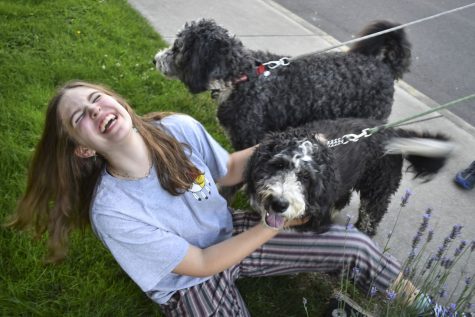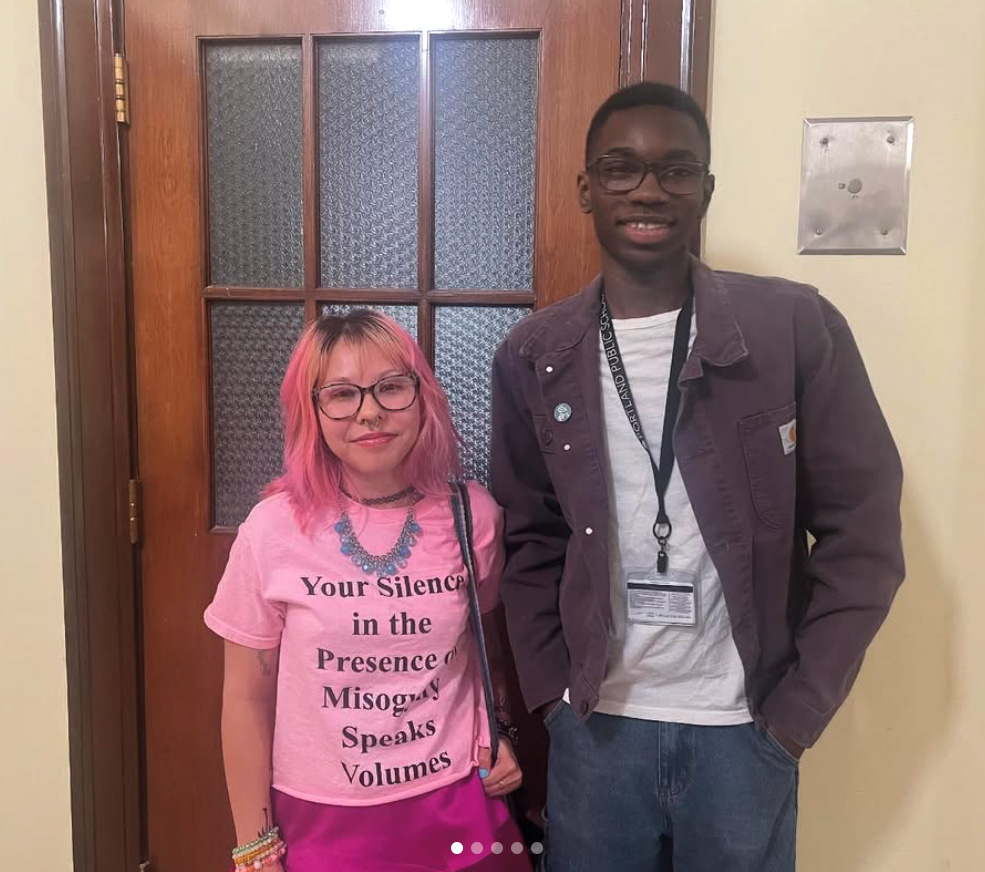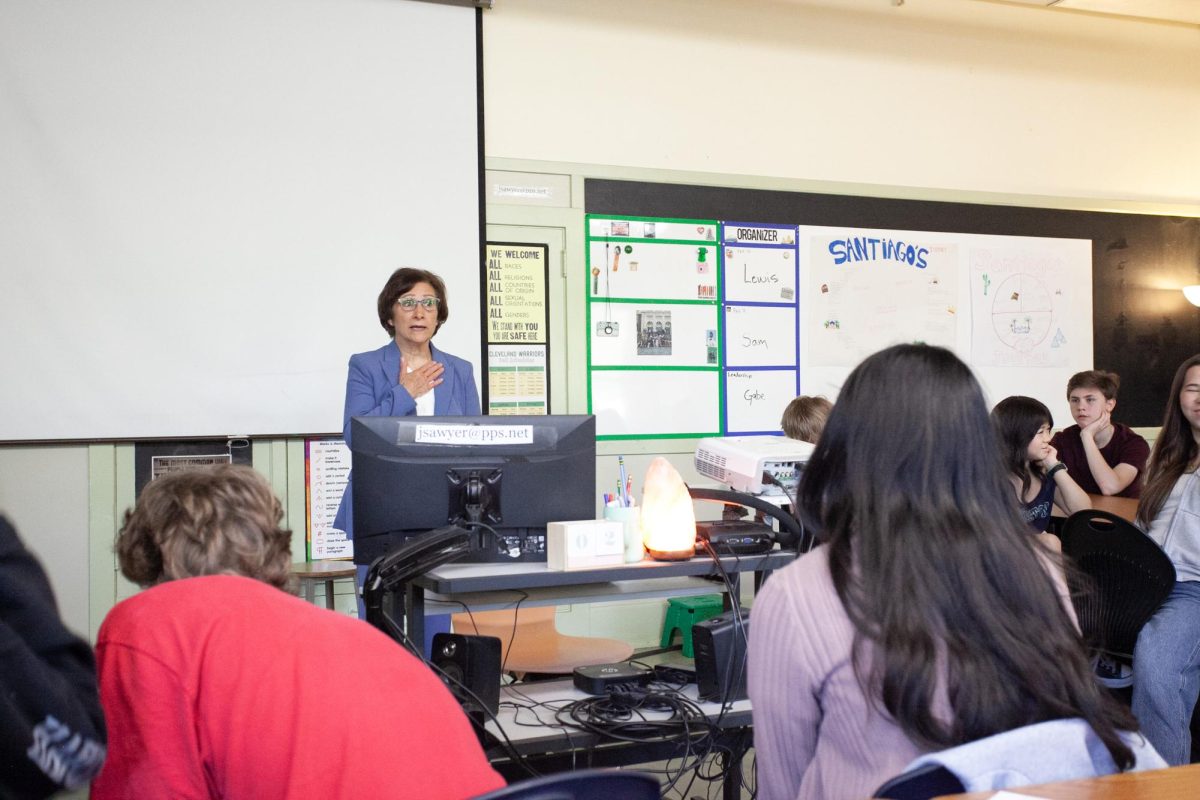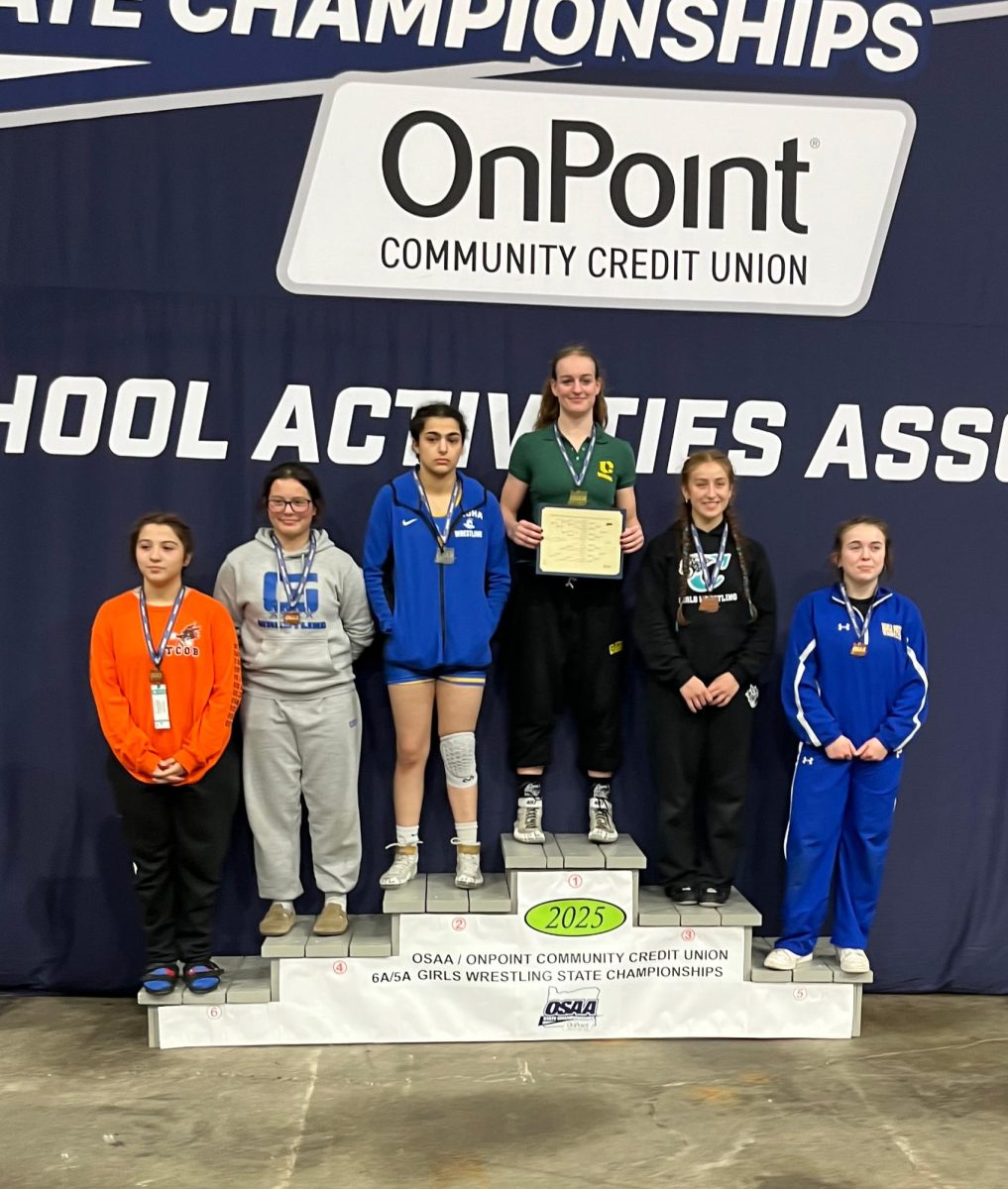Urban Indian: A Reflection on Thanksgiving
December 12, 2019
Thanksgiving is known for its traditions of turkey, mashed potatoes, and arguments with relatives. There is a lot of beauty in these rituals, but there is a history to this holiday that is often left unacknowledged.
This history is brutal and it irrevocably changed the reality of native peoples in America.
The full history of how the Americas transitioned ownership of millions of square miles from indigenous people to European immigrants through genocide, colonialism, and oppression is still under-investigated and under-acknowledged. What must be acknowledged as an erasure of native history is clearly apparent in educational curricula, in policy decisions, in media, and in the mindsets of many Americans.
Thanksgiving was declared an official holiday by President Lincoln during the Civil War to promote unity and thankfulness for the blessings of God in a difficult time. Since then, the holiday has become an essential American tradition.
The root of the problem with the Thanksgiving holiday is not found in Lincoln’s declaration, but rather in the way it was interwoven with the tale of the “first Thanksgiving.” As is well known, a Native American nation, the Wampanoag, are a key component to this story.
It paints a history of native peoples being submissive and welcoming to white settlers, welcoming to the people who would go on to commit innumerable atrocities against them. The “first Thanksgiving” narrative is often told in schools, holding a prominent place in the minds of non-indigenous people when they think of Native Americans.
The narrative is, firstly, false. Note that it is seldom told from the perspective of the Wampanoag whose descendants carry their story forward to this day. Secondly, it involves native peoples in a history that is framed positively towards colonists, in which agreements and promises are made and honored. In this story, both Pilgrims and Indians can live happily ever after.
This was not at all the reality of colonialist interactions with native peoples. By intertwining the narrative of the “first Thanksgiving” with United States history and the current holiday, America continues to erase indigenous history.
Erasure
It is a harsh irony that some of the earliest Thanksgivings in our colonial history were held to celebrate massacres of native people.
In 1637, Massachusetts governor John Winthrop declared an official “Day of Thanksgiving” to celebrate the murder and enslavement of 700 Pequot men, women and children.
In November of 1864, an attack occurred in a Colorado Territory village of Cheyenne Indians comprised of primarily women and children, resulting in their brutal murder. Their village was burned, and all those who escaped the fire were strategically tracked and shot. A party was thrown at the end of this in which the conquerors paraded with pieces from the bodies of the massacred native peoples.
U.S. Army Commander John Chivington, who led the massacre, said, “Damn any man who sympathizes with Indians! … I have come to kill Indians, and believe it is right and honorable to use any means under God’s heaven to kill Indians. … Kill and scalp all, big and little; nits make lice.”
These were the kinds of celebrations that for 100 years defined Thanksgiving in America. Numerous examples of these kinds of “thanksgivings” are not difficult to find. Yet a false narrative of the “first Thanksgiving,” with happy endings and honored treaties, persists. Indeed, native history is tied so closely to the cozy idea of this holiday that it has become a quintessential part not only of the holiday’s identity, but of American history and white nationalism. The “first Thanksgiving” story, in a sense, is symbolic of Native American acceptance for the ravages that would be called “manifest destiny.”
This is the process of erasure. By replacing difficult narratives with convenient stories Americans deny native peoples true justice. To ever reach a point of healing from the colonialist history of this country, non-indigenous people must begin by acknowledging the true histories of indigenous nations across this continent.
Why do so many Americans continue to erase and overlook these histories, even as sympathy for the Native American struggle has consistently increased in the public eye?
Is it possible that a majority of American citizens subconsciously choose not to acknowledge it for a very specific reason? Once you acknowledge something, action is demanded.
Even though most people are aware that Native Americans were the victims of one of the largest cultural genocides in history, they are not ready to change their own lives to work in opposition to this oppression. Often, issues surrounding Native Americans are placed on the back burner while more popular issues consume media and political attention.
Impacts of Erasure
Today reservation poverty and a lack of indigenous representation persevere throughout the country. Indigenous identities and communities are continuously challenged by the legacy of colonialism, which constrains indigenous ways of life.
By ignoring the larger processes in our history involving systematic removal of Native Americans from their ancestral lands we can not clearly look at how our reservation system came to be. This past played a crucial role in creating reservation poverty which is the source for so many of the issues that tribal governments and individual Native Americans are struggling to fight against to this day.
Native Americans face some of the lowest employment rates. It is surprising for many to realize that Native Americans have the highest suicide rates, rates of domestic violence and assault, substance abuse, and high school dropout rates in the nation.
These realities are the grandchildren of colonialism and colonization, and continue today, in large part, because they have been made invisible. A false history clouds the real and immediate realities native people face.
Thanksgiving is not an evil holiday. The intention of spending time with family to come together in celebration and thankfulness is beautiful.
However, if America continues to celebrate Thanksgiving as it has since its creation, native history is erased. Through this erasure systemic racism is furthered in this country.
The legacy of colonialism impacts every native person in America, and the “first Thanksgiving” story continues to deny them justice.











